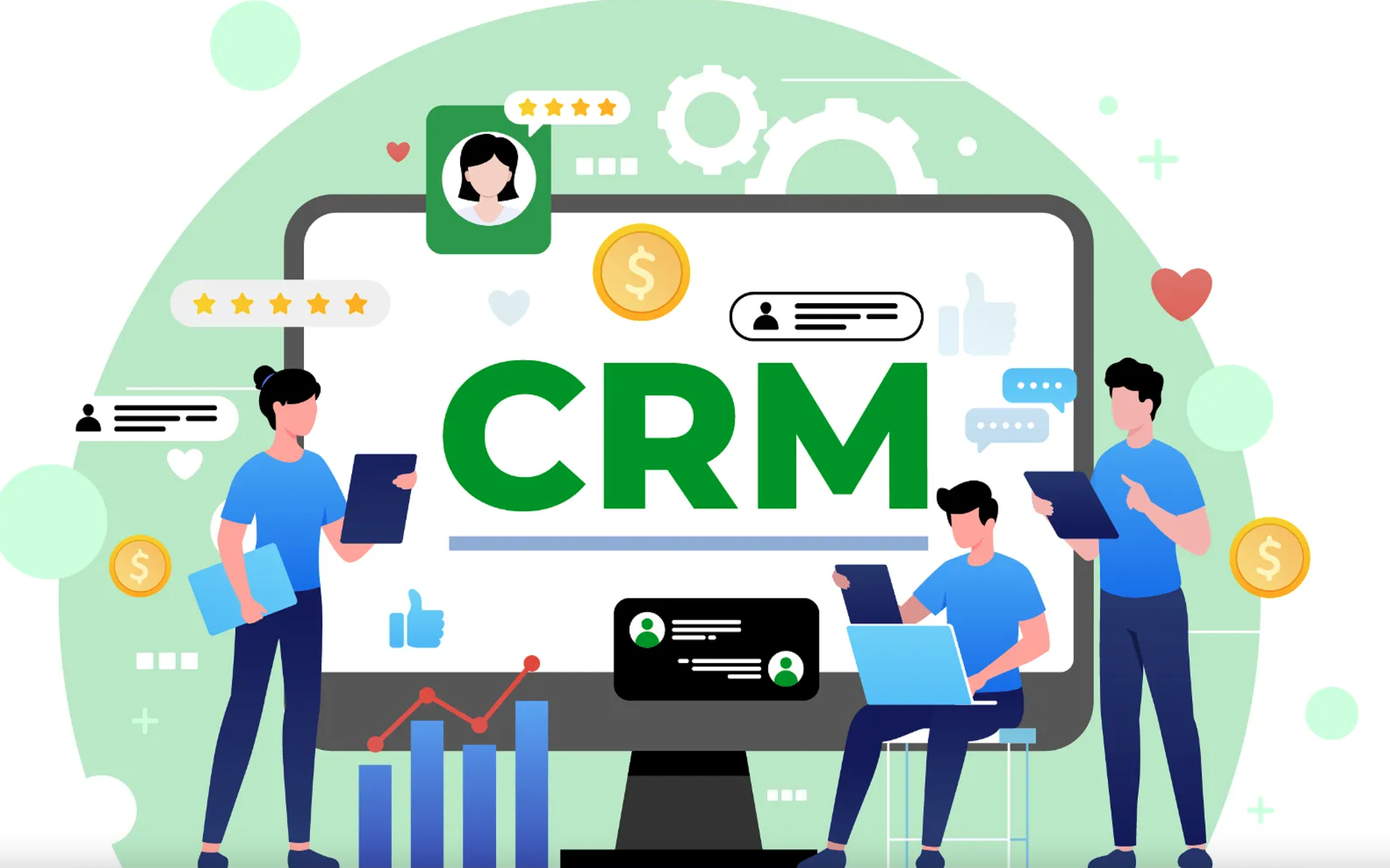CRM Software For Small Business – In today’s highly competitive business landscape, establishing and maintaining strong relationships with customers is essential for the success of any small business. This is where Customer Relationship Management (CRM) software comes into play. This article serves as an introductory guide to CRM software for small businesses, exploring its significance, benefits, key features, types, selection considerations, popular options, implementation tips, challenges, and real-life examples.
Importance of CRM Software for Small Businesses
CRM software is a valuable tool for small businesses to manage interactions and relationships with current and potential customers. It allows businesses to organize, automate, and synchronize sales, marketing, customer service, and technical support processes, resulting in improved efficiency and effectiveness.
Benefits of CRM Software
Streamlining Communication
CRM software centralizes customer data, communication history, and interactions, enabling seamless communication across departments. This leads to better coordination and collaboration, ultimately enhancing the customer experience.
Improved Customer Service
By providing access to comprehensive customer information, CRM software empowers small businesses to deliver personalized and timely support. This enhances customer satisfaction and loyalty, driving repeat business and referrals.
Enhanced Sales and Marketing
CRM software helps small businesses track leads, manage sales pipelines, and execute targeted marketing campaigns. With insights derived from customer data and analytics, businesses can identify trends, preferences, and opportunities, enabling more effective sales and marketing strategies.
Key Features of CRM Software
Contact Management
CRM software allows businesses to store and organize customer contact information, including names, addresses, phone numbers, and email addresses. This facilitates efficient communication and relationship management.
Lead Management
CRM software helps businesses track and nurture leads throughout the sales process, from initial contact to conversion. It enables lead scoring, segmentation, and automated follow-up, increasing the likelihood of conversion.
Task Management
CRM software enables businesses to assign tasks, set reminders, and track activities related to customer interactions. This ensures that nothing falls through the cracks and helps teams stay organized and focused.
Reporting and Analytics
CRM software provides insights into sales performance, customer behavior, and marketing effectiveness through customizable reports and dashboards. This enables data-driven decision-making and continuous improvement.
Types of CRM Software
On-premise CRM
On-premise CRM software is installed and maintained on the company’s servers and infrastructure. It offers greater control and customization but requires upfront investment and ongoing maintenance.
Cloud-based CRM
Cloud-based CRM software is hosted and maintained by the CRM vendor and accessed via the internet. It offers scalability, flexibility, and accessibility, with subscription-based pricing models suitable for small businesses.
Mobile CRM
Mobile CRM software allows users to access CRM functionality on smartphones and tablets, enabling remote work, field sales, and on-the-go productivity. It enhances flexibility and responsiveness, particularly for small businesses with mobile workforces.
Factors to Consider When Choosing CRM Software
Budget
Small businesses should consider the total cost of ownership, including licensing fees, implementation costs, and ongoing support expenses, when evaluating CRM software options.
Scalability
CRM software should be scalable to accommodate business growth and evolving needs. It should offer customizable features and integrations to support future expansion and innovation.
Integration Capabilities
CRM software should seamlessly integrate with existing systems and tools, such as email, marketing automation, and accounting software, to avoid data silos and streamline operations.
Popular CRM Software for Small Businesses
HubSpot CRM
HubSpot CRM offers a user-friendly interface, robust features, and integration with the HubSpot suite of marketing, sales, and service tools. It provides free and paid plans suitable for small businesses of all sizes.
Zoho CRM
Zoho CRM offers a comprehensive set of features, customizable workflows, and affordable pricing options. It integrates with a wide range of third-party applications and offers mobile apps for iOS and Android.
Salesforce Essentials
Salesforce Essentials is designed specifically for small businesses, offering sales and customer support functionality in one unified platform. It provides AI-powered insights, collaboration tools, and scalability for growing businesses.
Implementation and Adoption Tips
Employee Training
Proper training and onboarding are essential for successful CRM implementation. Businesses should invest in training programs to ensure that employees understand how to use the software effectively.
Data Migration
Smooth data migration is critical to maintaining data integrity and continuity during CRM implementation. Businesses should plan and execute data migration carefully, ensuring accuracy and completeness.
Case Studies
Real-life Examples of Small Businesses Benefiting from CRM Software
- Case Study 1: XYZ Bakery increased customer retention by 20% after implementing HubSpot CRM to personalize marketing campaigns and track customer feedback.
- Case Study 2: ABC Consulting improved sales productivity by 30% by integrating Zoho CRM with their email marketing platform to automate lead nurturing and follow-up processes.
Challenges of Implementing CRM Software
Resistance to Change
Employees may resist adopting CRM software due to fear of change or unfamiliarity with technology. Businesses should address concerns proactively through communication, training, and support.
Data Security Concerns
Storing sensitive customer data in CRM software raises concerns about data security and privacy. Businesses should implement robust security measures, such as encryption and access controls, to protect customer information.
Conclusion
In conclusion, CRM software is a vital tool for small businesses looking to enhance customer relationships, streamline operations, and drive growth. By centralizing customer data, automating processes, and providing insights, CRM software enables small businesses to deliver personalized experiences, improve customer satisfaction, and increase sales effectiveness.
Whether opting for cloud-based, on-premise, or mobile CRM solutions, small businesses can benefit from improved efficiency, scalability, and accessibility. Moreover, industry-specific CRM software can cater to unique business needs and requirements, further optimizing performance and outcomes.
